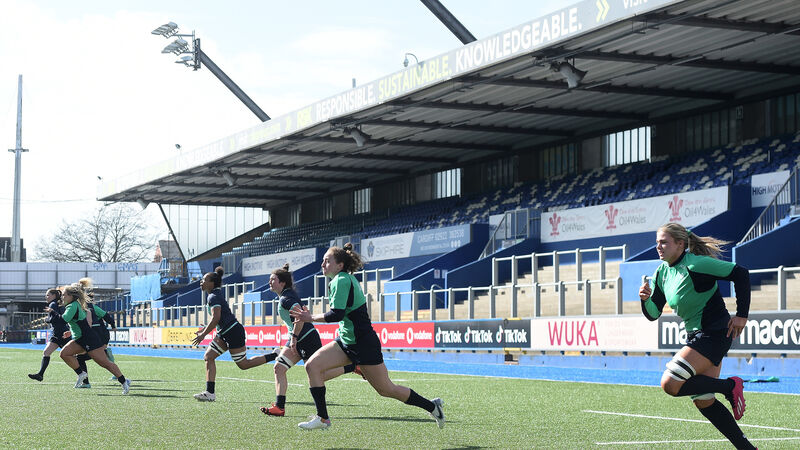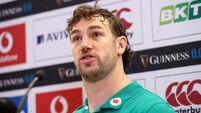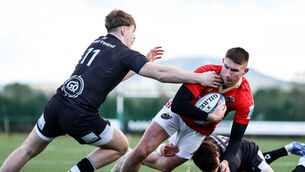Ciara Griffin: Why Ireland need a top-three finish in the Six Nations

The Ireland Women’s Rugby team during their Captain's Run at Cardiff Arms Park on Friday. Picture: INPHO/Ashley Crowden
Ireland head into this year’s TikTok Women's Six Nations without any warmup matches under the belt of its young side.
Greg McWilliams has put a lot of emphasis on player game time in the Celtic Cup games over the course of five weeks. The Irish combined provinces remained unbeaten in the competition. Selection was based on performance during the Women’s Interprovincial series and no English Premiership-based players were eligible for selection.












